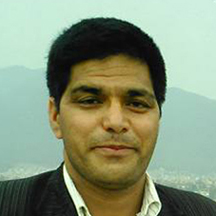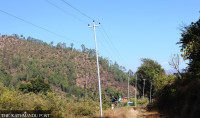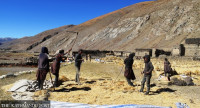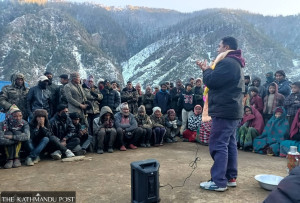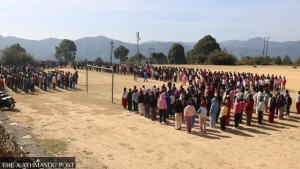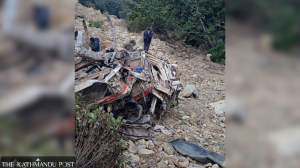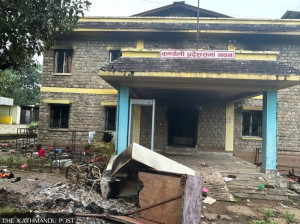Karnali Province
Drinking water projects benefit rural settlements in Kalikot district
Eight drinking water projects under the provincial government and 56 projects under the Department of Drinking Water are being implemented in the district.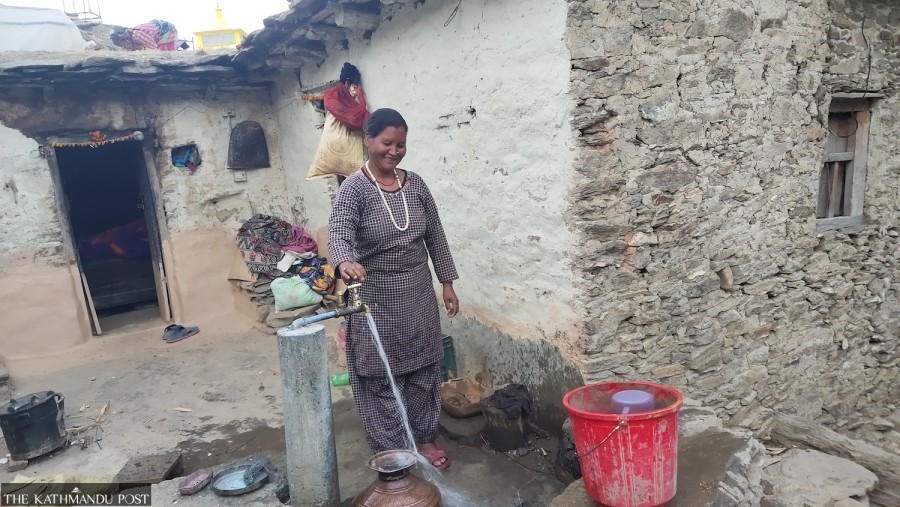
Tularam Pandey
Several remote settlements in Kalikot have benefitted from the ‘One House, One Tap’ campaign adopted by most local units in the district.
The campaign, which has been adopted by Khadachakra, Raskot and Tilgufa municipalities and Pachaljharana, Palata, Naraharinath and Subhakalika rural municipalities, aims to supply drinking water to every household in the local units.
Jasi Prasad Pandey, mayor of Khadachakra Municipality, said over 500 taps have already been installed at Pakha, Pili, Bihani, Baratu and Megra, among other settlements.
“Local residents have been actively participating in the repair and maintenance of the old water tanks and the construction of new ones,” Pandey said. “Seven settlements of Khadachakra have been declared safe drinking water settlements.”
The majority of village and municipal councils in Kalikot district have kept drinking water and sanitation on their priority list and adopted the ‘One House, One Tap’ policy. Under the campaign, taps have been installed in over 3,000 households in Khadacharka, Palata, Raskot, Naraharinath, Subhakalika and Tilgufa, according to the Drinking Water, Irrigation and Energy Development Office in Kalikot.
Within three years of the first village council meeting, around 50 percent of the households in Thirpu, Dhaulagoha and Khin of Palata Rural Municipality have installed taps and are set to receive safe drinking water soon.
“Palata used to be a drought-hit area. But we have constructed a water tank to distribute drinking water to all wards in the local unit. This will end the water shortage problem of Palata soon,” said Laxman Kumar Bam, chairman of the rural municipality.
Eight drinking water projects under the provincial government and 56 projects under the Department of Drinking Water are being implemented in the district, according to Devananda Dhital, information officer at the District Drinking Water, Irrigation and Energy Development Office
The local women of Thirpu, who are mainly responsible for managing water at home and in the fields, are elated with news of the water supply.
“We had to drink water from the stream in the past. But now, each household has a water tap. The water supply has eased our household work and helped in maintaining sanitation,” said Maina Devi Bam, a 45-year-old woman of Kalchiuri village in Palata-9.
According to her, as many as 11 villagers had died of diarrhoea in 2006 after drinking unsafe water from the local stream.
Similarly, water taps have been installed at around 1,100 houses in Raskot Municipality. The municipality plans to connect taps in another 1,000 houses in the current fiscal year. There are a total of 3,285 households in the municipality.
According to Kashi Chandra Baral, mayor of Raskot Municipality, drinking water taps have been installed in all houses of Sipkhana, Syuna, Baddala, Phukot, Puchchhegaun and Talel villages.
He said the municipality plans to initiate a multipurpose project to provide drinking water, generate electricity and provide irrigation facilities by constructing a reservoir at Sipti.
Likewise, drinking water taps have been installed in each household of Manma and Pili in Khadachakra Municipality.
According to Rabindra Sejuwal, the health unit chief of the local unit, Khadachakra Municipality distributed water filters to 1,100 impoverished families to ensure safe drinking water for them under the ‘Sunaulo Hajar Din’ programme this year.
Similarly, Tilgupha Municipality and Naraharinath Rural Municipality in the district have also prioritised the ‘One House, One tap’ campaign.




 20.12°C Kathmandu
20.12°C Kathmandu